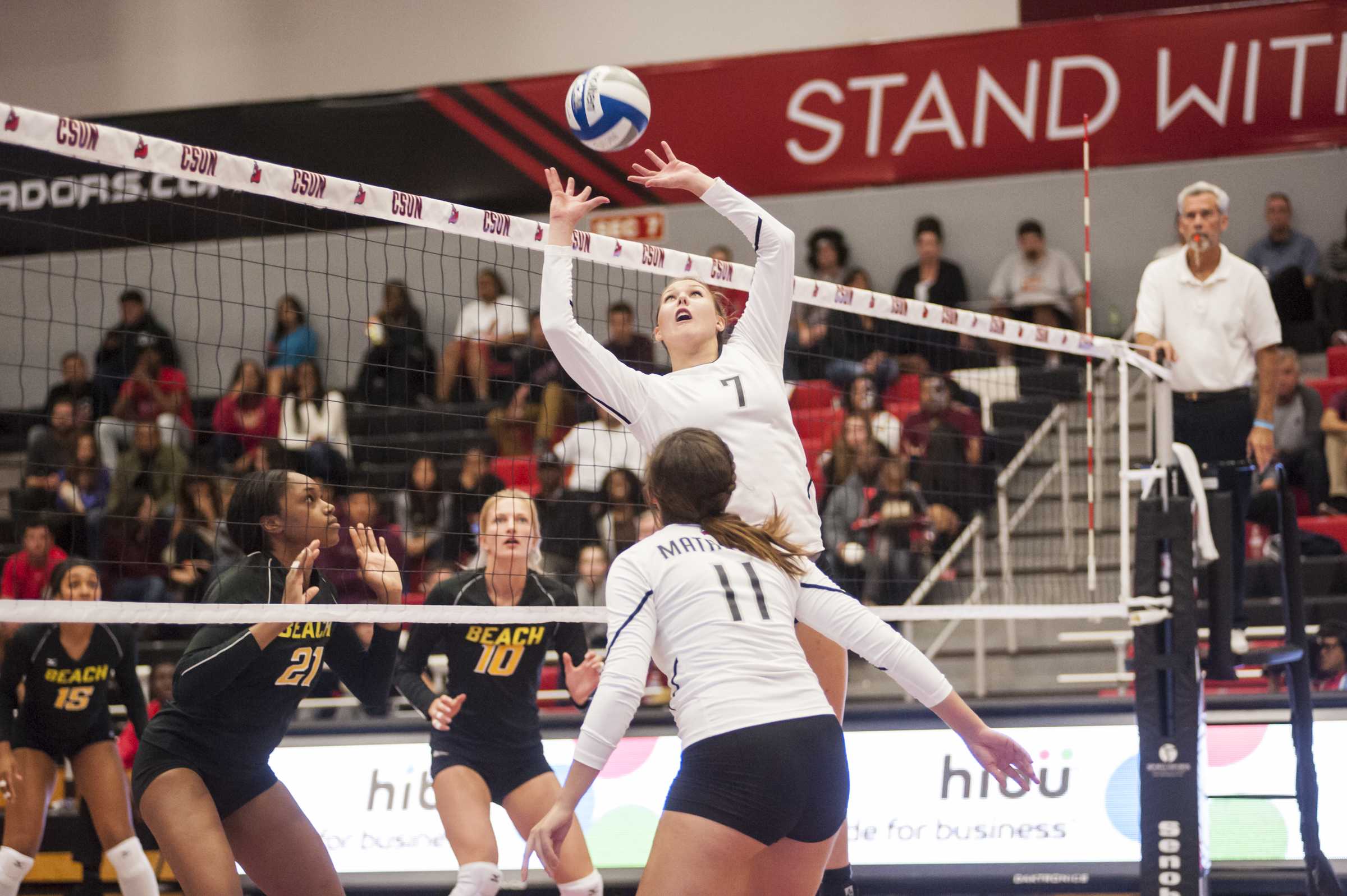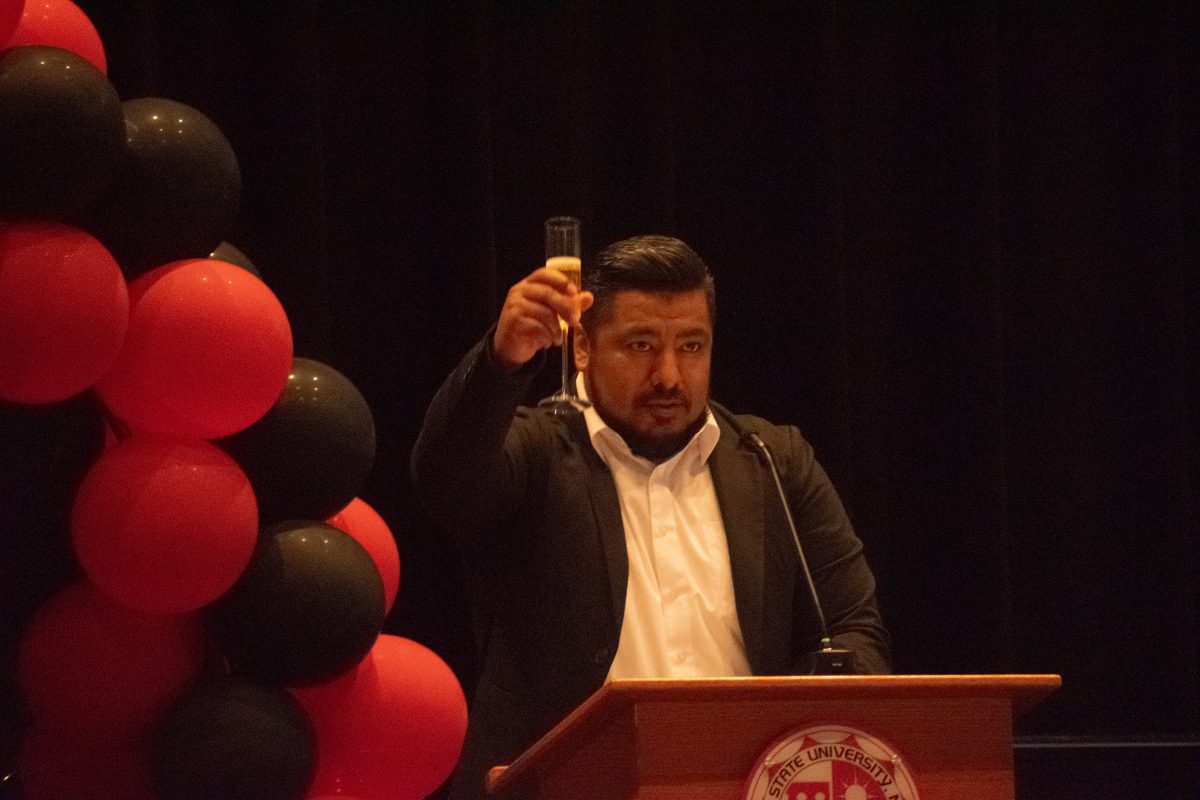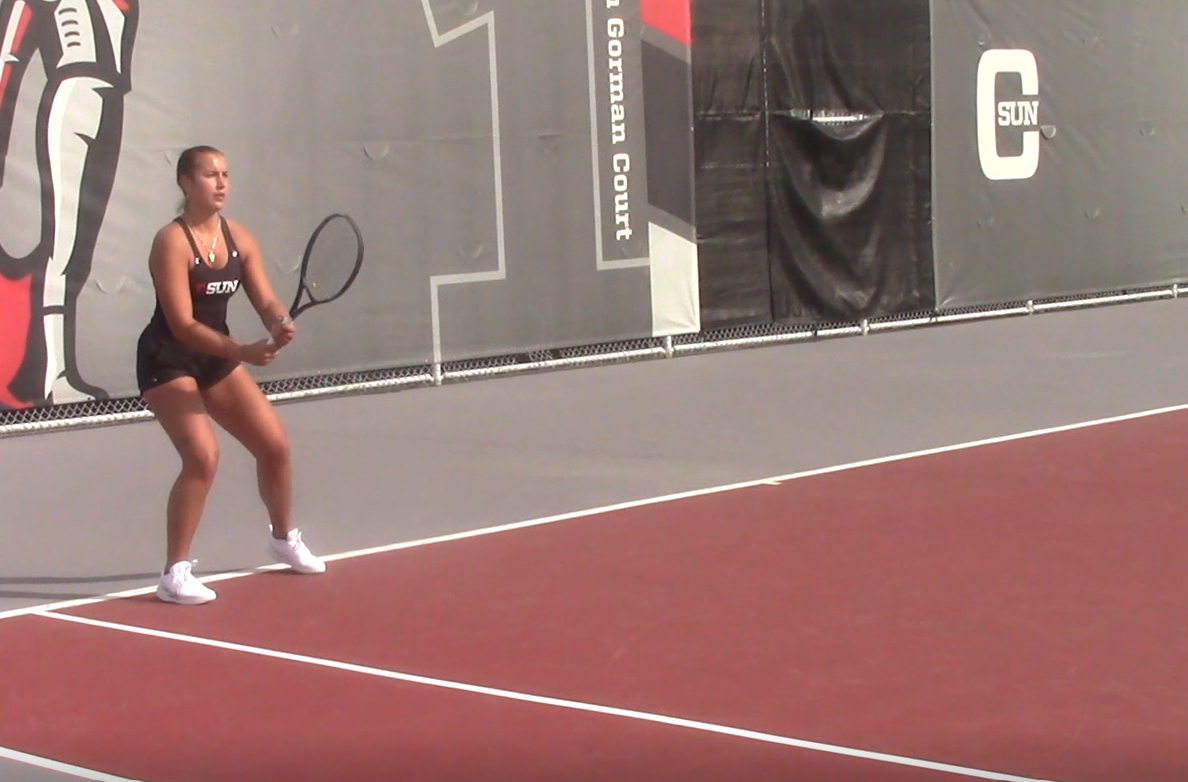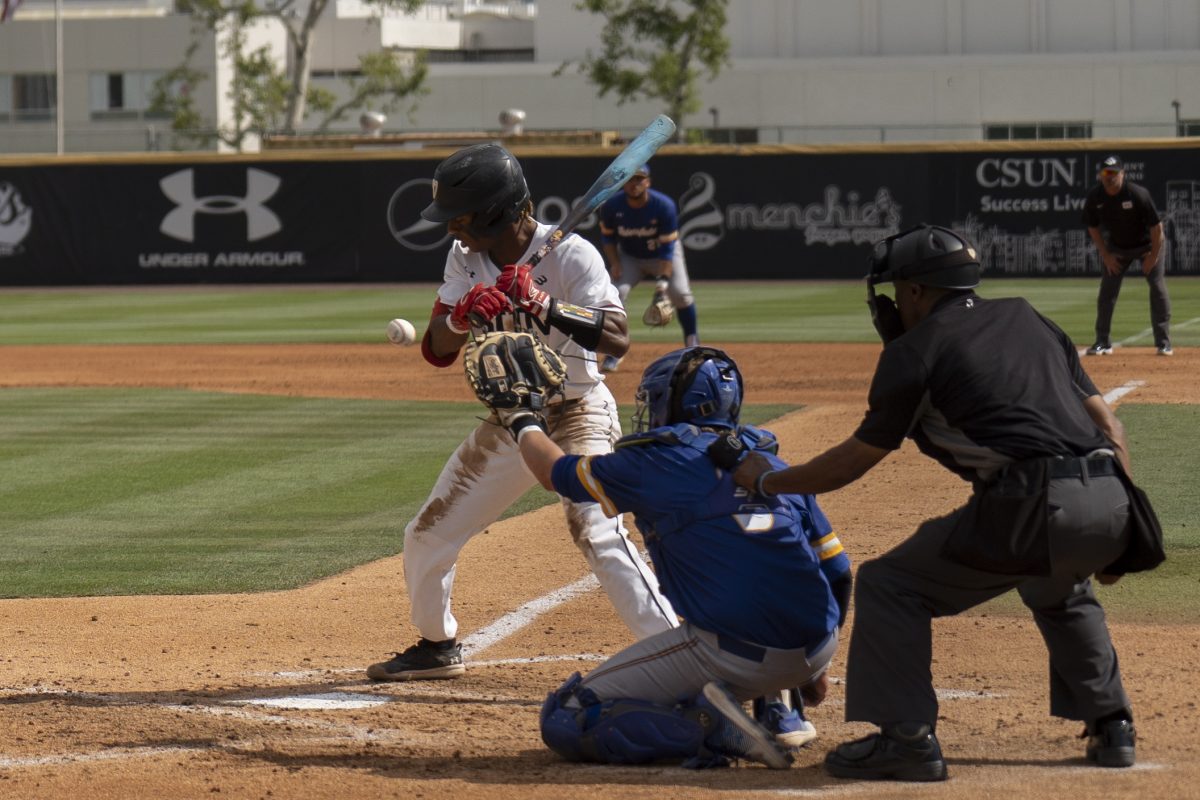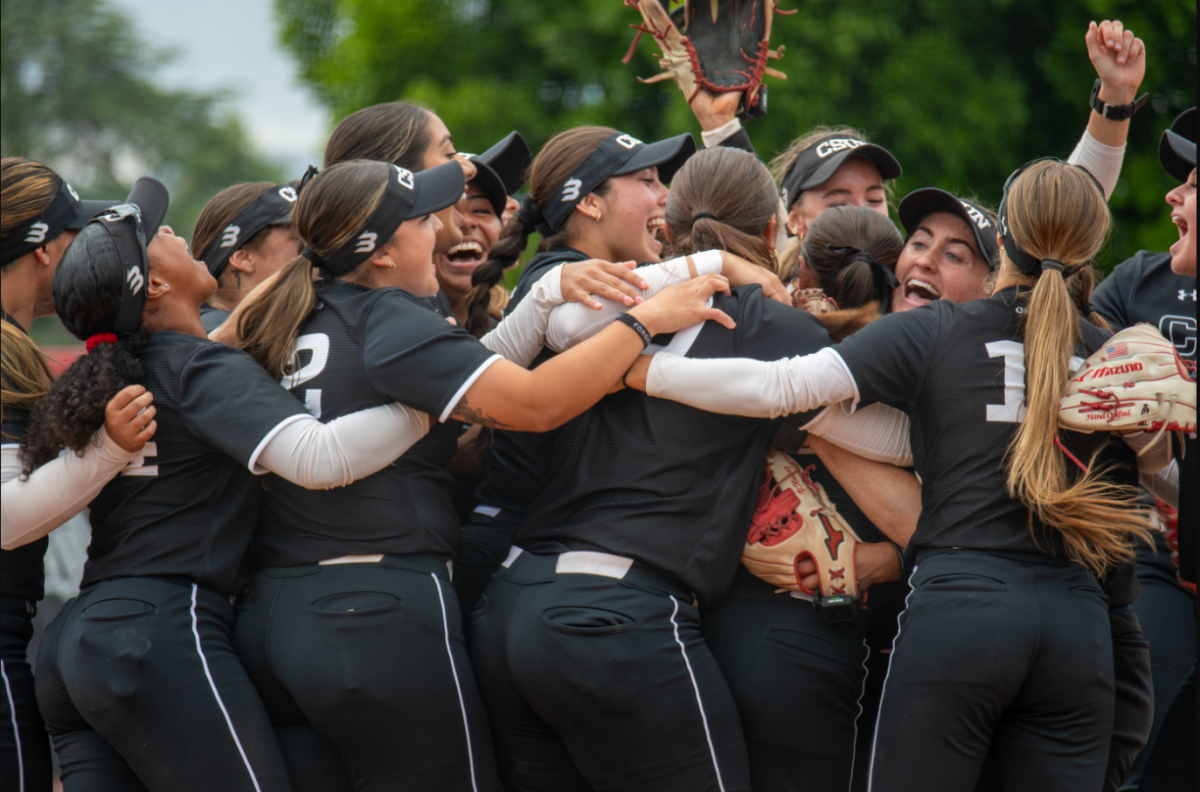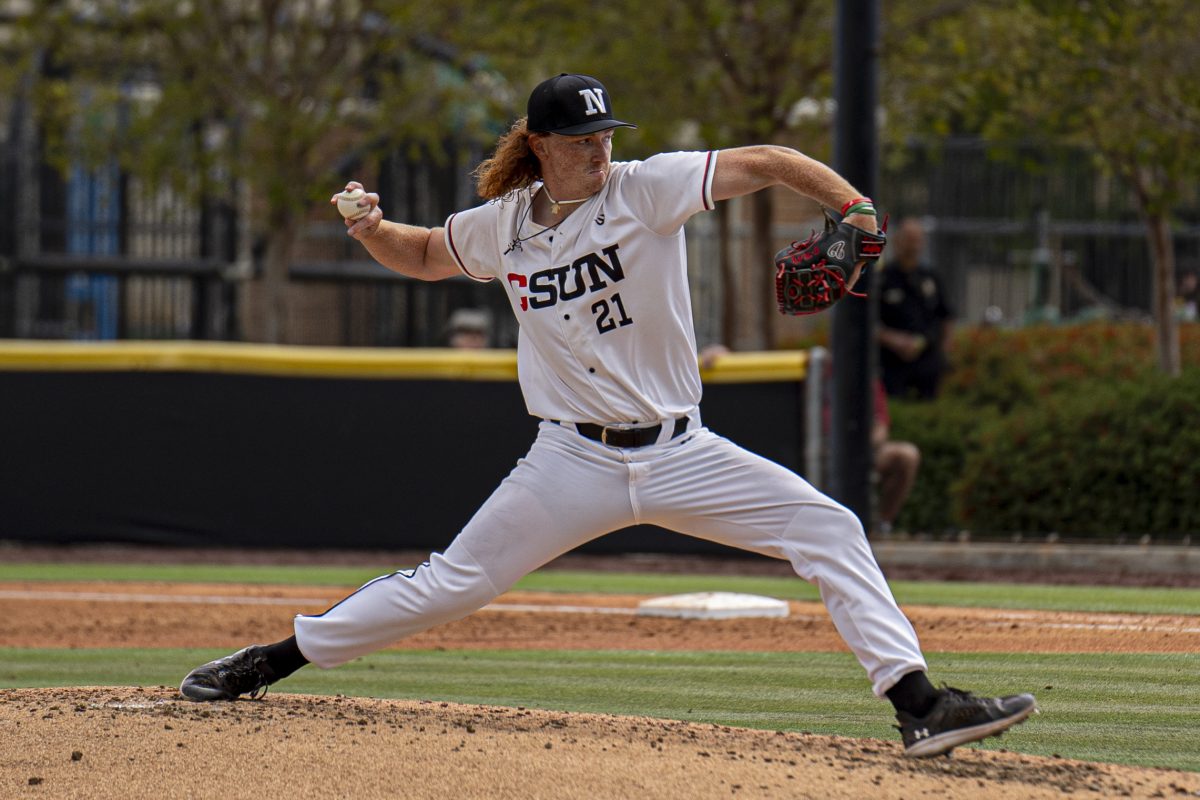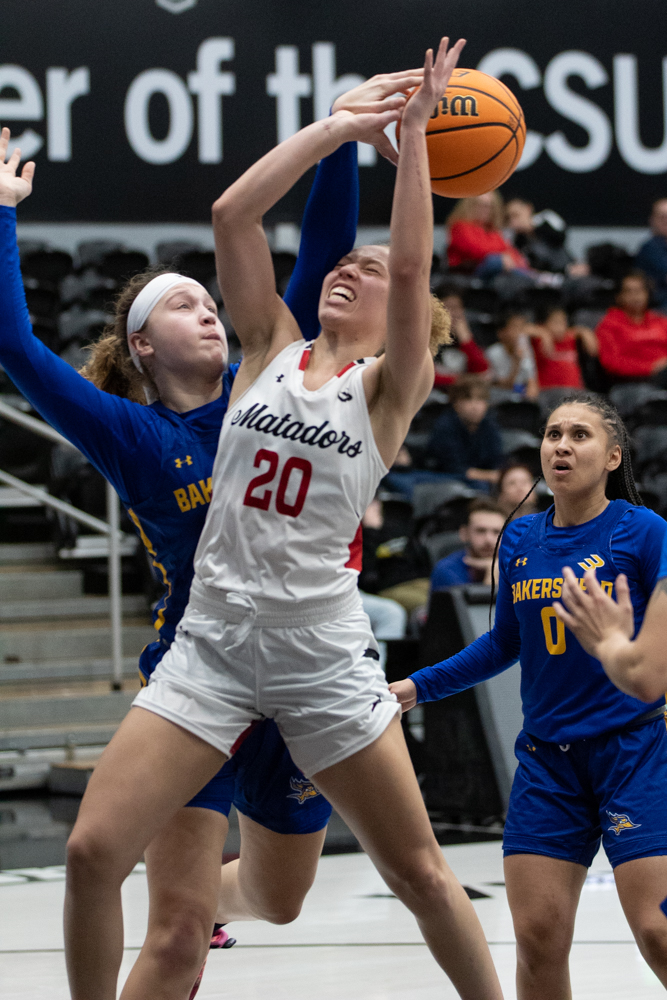After completing a 19-9 season, tying for third in the Big West Conference at 10-6 and having four players named to the 2014 All-Big West Team, the Matadors’ women’s volleyball team had 18 of those 19 wins vacated.
A vacated game is expunged from the school’s record (rather than a forfeit which is considered a loss), while the opponent’s record remains unchanged. This takes the team’s overall record to 1-9 and conference record to 1-6.
The loss of those wins was a result of CSUN utilizing an ineligible player. This infraction was self-reported by CSUN to the National Collegiate Athletics Association (NCAA).
“One student was ineligible,” said Amy Millstone, associate athletic director, strategic communications at CSUN. “And that’s why it [the punishment] happened.”
However, the vacated wins were enforced by the Big West Conference rather than the NCAA itself because it was in line with Big West’s policy.
“We talked to both parties frequently,” Millstone said, referring to the process of admitting guilt and working with multiple entities.
To be more specific, Big West commissioner Mike Villamor confirmed that it was a violation of section 3.1.2 in the Big West manual, which states: “If a student-athlete is declared ineligible by the Conference or by the NCAA after having participated in regular season or postseason play, the institution for which the student-athlete is competing may be required to vacate all events in which the athlete competed.”
Though seemingly harsh, the vacation of wins is not all that uncommon a punishment with NCAA infractions and violations.
From 1997 to 2010, for football alone, 93 wins were vacated across just seven conferences all for various reasons.
In the case of CSUN, the vacated wins were due to a single player who is no longer able to continue her athletic career as a Matador or in any other collegiate fashion.
“This player has exhausted her eligibility with the NCAA,” Millstone said.
Ineligibility in the NCAA can be caused by any number of reasons.
In 2013, the University of Wyoming’s women’s volleyball team had three season’s worth of victories vacated because five of its players were recipients of improper benefits.
In 2002, the University of Hawai’i‘s men’s volleyball team was stripped of its national championship because the team used a player with professional experience.
Then in 2011, Georgia Tech‘s football team had to vacate its 2009 Atlantic Coast Conference (ACC) title and other wins because a player was deemed ineligible after accepting gifts worth $312 from a friend of a sports agency employee.
In order for these teams to be charged with vacation of wins, the NCAA must undergo investigations proving they have committed some sort of violation.
For this investigative process to begin there has to be some kind of information reported to the NCAA.
That information can come from media, anonymous sources, individuals and institutions. The staff can also cultivate sources which provide information about possible tips, as stated on the NCAA’s official site. Once the information is proved credible, an investigation begins.
Relative to CSUN though, the NCAA did not need to do much investigating, as the violation was self-reported.
While the official announcement of punishment for the ineligible player was not issued until Aug. 24, Millstone said CSUN’s athletic department was aware of the issue during the 2014 season, and worked toward a resolution then.
“The average enforcement investigation takes less than 12 months, though some more complicated cases can take longer,” the NCAA’s site said.
Players that had graduated and earned those 19 wins weren’t immediately made aware of the vacated wins when they were announced.
When former CSUN volleyball player Kelcie Randazzo was told about the vacated wins, she was at a loss for words, saying that she needed time to process everything, before abruptly ending the conversation.
Though some former players are forced to grasp the severity of the issue, administrators and CSUN officials had already moved on from the issue and are now focused on the current season, Millstone said.
“This matter is closed and behind us and we’re excited about the upcoming season,” she said.
